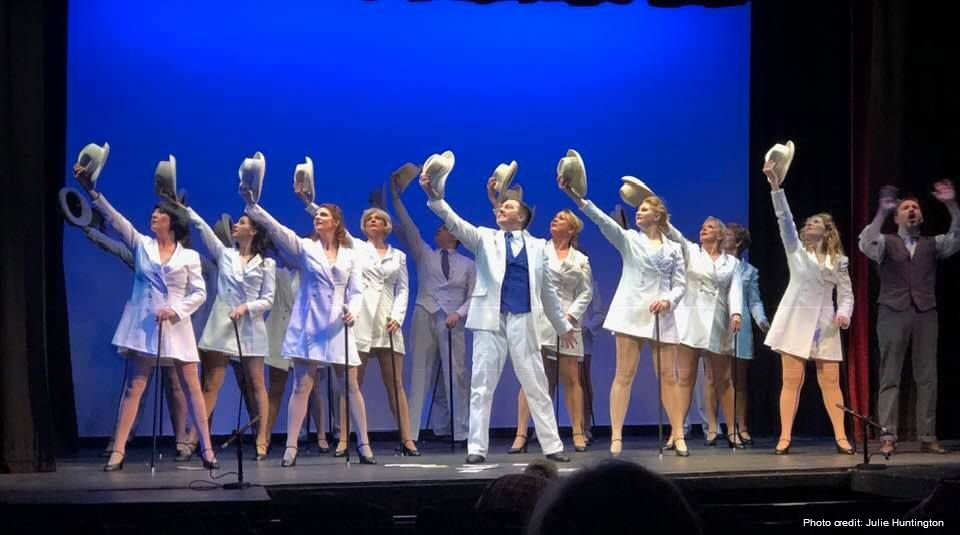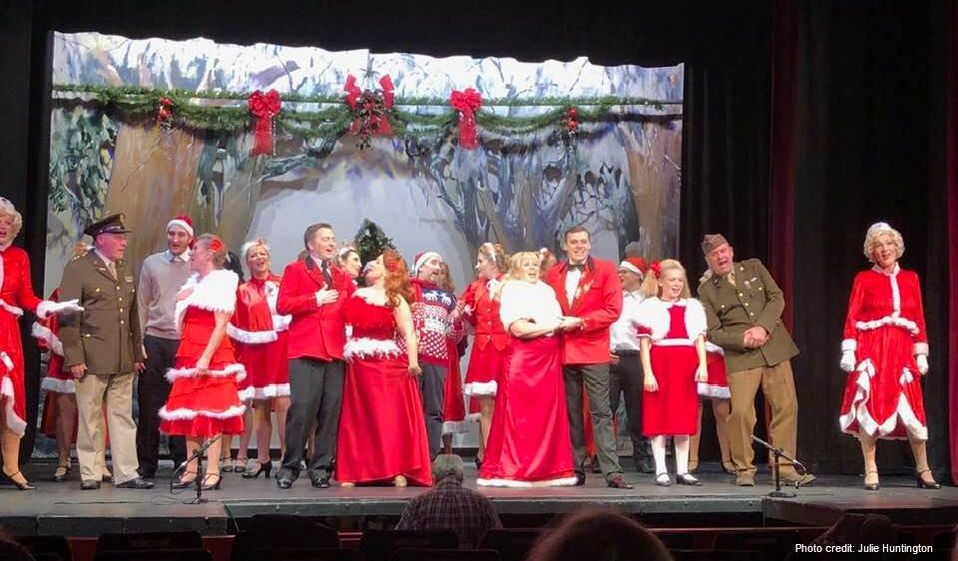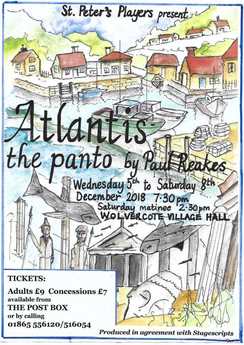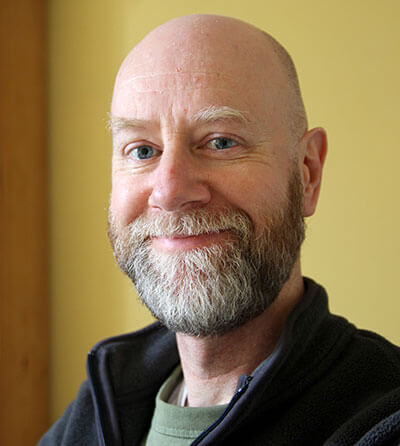|
WHITE CHRISTMAS (Music and Lyrics by Irving Berlin, Book by David Ives and Paul Blake) HAODS Kenton Theatre, New Street, Henley-on-Thames, RG9 2BP 5-8 December 2018 The song 'White Christmas' first appeared in the 1942 movie, 'Holiday Inn', starring Bing Crosby and Fred Astaire. Such was the success of the song that, in 1954, there was a sort-of remake, this time called 'White Christmas', based very loosely on the same story, again starring Bing Crosby, and co-starring Danny Kaye. It is on this 1954 film that the stage musical is based. Bob Wallace (Ryan Stevens) and Phil Davies (Nick Brannam) were buddies in the US Army in WWII, but have since teamed up to become a famous song-and-dance act. One evening, they meet up with sisters Betty and Judy Haynes (Sally Sharp and Gemma Hough), another song-and-dance act who are struggling to get their careers off the ground. Phil falls for Judy, but Bob and Betty decidedly do not like each other. At all. Phil is so smitten with Judy that, when he discovers that the sisters are off to Vermont for a Christmas booking, he decides to go there too. Bob and Phil are actually due to go to Florida for Christmas, but Phil fools Bob into getting on to the Vermont train instead. When they arrive at the Columbia Inn in Vermont, they discover that it is run by their old WWII army commander, Major General Waverley (Barrie Scott). He has fallen on hard times, as the hotel is doing badly. Bob decides to put on a show to help the general, inviting all his old comrades from his army days. Meanwhile Bob and Betty have fallen for each other. However, Betty hears about Bob's plan to help the general, but misunderstands his intentions. She thinks Bob is planning a sneaky takeover of the hotel. In the end, the misunderstandings are resolved and Bob and Betty are reconciled. Director Jennifer Scott served up a polished production of this ever-popular story. Ryan Stevens and Nick Brannam worked well as singing and dancing duo Bob and Phil, who fool around and spar with each other. Their performance of 'Sisters' (in the absence of Betty and Judy) was perfectly pitched for comic effect. It would have been easy to over play the comedy of the piece and ham it up, but Jennifer Scott's direction reined them in just enough. Ryan's Bob up against Sally Sharp's Betty Haynes convinced as a couple who loathe each other, with regular eye-rolling and sardonic put-downs. We could all see their falling in love coming a mile off, but the transformation was, nevertheless, touchingly portrayed. Gemma Hough's bubbly, bouncy good-time girl Judy Haynes hit the spot and was well paired with Nick Brannam's Phil. The singing of the principals was accomplished. Betty and Bob's performance and reprise of 'How Deep is the Ocean' was a gorgeous sound, as was Betty and Judy's own performance of 'Sisters'. Barrie Scott pulled off a believable portrayal of General Waverley. Physically, he was right for the part, but he managed to bring us a military man who will not allow standards to slip, with a softer man inside, who has come to recognise his limits. Ginnie Freeman gave comic sparkle to the role of Martha Watson, the general's secretary, who spars with her boss and is in no way intimidated by the former military commander. Some good comic timing from Ginnie. We had a couple of brilliant cameos from Samantha Riley and Nicola Gordon as showgirls Rhoda and Rita. They have their eyes (and a lot more, if they had their way) on Bob, openly flirting with him in front of Betty, causing the expected jealousy. Bob can't quite give them up, even with Betty around. With Samantha and Nicola's infectious energy and charm, who could blame him? The general's grand-daughter Susan was played by two different child performers on alternate evenings. On the evening I went, the role was taken by nine-year-old Sophia Newborough who gave a quite remarkable performance. Her solo of 'Let Me Sing and I'm Happy' drew deserved cheers from the audience.
Congratulations are also in order to Gemma Hough as choreographer and John Timewell as musical director, who drew some slick routines and performances from the members of the chorus. The Kenton Theatre is fortunate enough to have flies, so scenery backdrops can be dropped and raised easily. It was a facility that was made full use of. I especially liked the backdrop in the barn at the Columbia Inn. Jennifer Scott should feel a sense of satisfaction at bringing us a version of this Christmas favourite that had energy, humour and seasonal sparkle. Photo credits: Julie Huntington
0 Comments
ATLANTIS, THE PANTO by Paul Reakes
St Peter's Players Wolvercote Village Hall, Wolvercote Green, Wolvercote, Oxford, OX2 8BD 5-8 December 2018 St Peter's Players served up an enjoyable evening of fun with this rather different take on the traditional panto. The evil sorceress Surpia (Yvonne Janacek) arrives in the underwater kingdom of Atlantis, imprisons its King (Nancy Hillelson) and Queen (Jane Hemmings) and takes power for herself. However, The king and queen's baby daughter Princess Coral has been whisked away to safety by her nursemaid, escaping the evil clutches of Surpia, who vows to track her down, however long it takes. It is twenty years later, and we are in the Cornish fishing village of Portaloo. The Princess Coral, we learn, was rescued by mermaids and adopted by local widow Florrie Flotsam (Richard Gledhill in fine dame form) and is now a beautiful young woman (Charley Middleton). She knows nothing of her true parents and believes she is plain Faye Flotsam. Enter Lord Valentine (Zehra Kelly) who sees 'Faye' and falls in love with her. However, the evil Surpia discovers that Faye is really Princess Coral and spirits her away as a prisoner to her secret lair in Atlantis. Lord Valentine sets sail to rescue her, accompanied by Florrie Flotsam, her hapless son Frankie Flotsam (David Smith) and his girlfriend Lilly (Mary Drennan). After many adventures, all ends well with Surpia meeting her much deserved end at the hands (or tentacles) of the Kraken that she has summoned up to devour her enemies. Lord Valentine weds the princess and all live happily ever after. This was a production that caused much mirth for the audience and was good clean fun (with a few double entendres thrown in for the grown-ups to get). There was a magnificent chorus of young children who sang and danced really well, better in fact than most of the adults! I particularly enjoyed their rendition of 'Portaloo' (to the tune of Abba's 'Waterloo'). Yvonne Janacek was suitably evil and hammy as the sorceress Surpia and interacted with the audience nicely (if that's the right word). She was assisted by her sidekick Croak, half-man, half-frog, played with suitable sliminess by Isaac Alcock. Richard Gledhill was a world-weary, sardonic dame as Florrie Flotsam, bantering with the audience. His performance reminded me of the late, great Roy Barraclough. David Smith was stretching his playing age range somewhat (!) as her gormless son Frankie, but with his mum being played by a bloke, I'm not sure that even counts as a criticism. David struck up a lovely double-act with Mary Drennan as his girlfriend Lilly. Shades here of Kevin the Teenager and Perry. A great cameo role from Sean Hazell as Captain Capstan, Lord Valentine's skipper. With a Cornish accent that was so thick sometimes, that you could barely understand what he said (neither could some of the other characters), and good comic timing, Sean turned this into a bigger role than you might have expected. Charley Middleton was the suitably damsel-in-distress princess. Charley had by far the best singing voice of the cast and it was a pleasure to listen to her during the musical numbers. Zehra Kelly made a dashing Lord Valentine, but could, perhaps, have brought a little more feeling of gung-ho and derring-do to the part. I think she slapped her thigh but once during the whole show. Tony Bywaters played Zardoc, the king and queen's mystical magician, wearing a long blond wig and a permanently serious, thoughtful expression. Tony's character bore a remarkable resemblance to Neil from 'The Young Ones'. Finally, Jane Hemmings and Nancy Hillelson were suitably regal and distressed parents as the Queen and King of Atlantis. I especially liked Nancy's beard that had a touch of the Mesopotamian or ancient Persian about it. Mention must be made of the brilliant scene on the seabed. Top marks to director Clare Winterbottom for this imaginative section in which not a word was spoken, and the scenery and staging were superb. The stage was lit by ultraviolet light, which made everything luminous. Members of the chorus were sea creatures from the bottom of the ocean. They wore black umbrellas on their heads from which were hung long streamers in fluorescent colours that glowed in the ultraviolet light, and which were gently twirled around. Fish, also glowing, swam by. The backdrop was painted to resemble sea weed in fluorescent yellows, purples, red and whites. Then the lights came up and and the principal characters appeared, wearing deep-sea divers' helmets. All communication between them was mimed, in slow motion, of course, as befitted the weightless environment. Young members of the chorus Joe and Sam Churchill Stone deserve mention as Surpia's sharks, Snip and Snap, who chased Frankie, Lilly and Florrie round the seabed. The Kraken, at the end of the play, was a wonderful comic creation. Three long tentacles, reaching from out of the wings, grabbed Florrie, Frankie and Lilly, and eventually did for Surpia. It's amazing what you can do with a length of elephant tubing and lick of paint, plus some hammed up, over-the-top performances from the players! So well done to everyone, but one constructive criticism. With the notable exception of Charley Middleton's princess, none of the principals had loud singing voices. This meant that it was difficult to hear them above the band. I am generally not a fan of microphones, but this would have been one occasion when wiring the actors for sound would have enhanced our experience. By contrast, the children sang loud and clear. Well done to all concerned for an enjoyable evening out, with much silliness to go round. THE CRUCIBLE BY ARTHUR MILLER
Abingdon Drama Club Unicorn Theatre, 18 Thames Street, Abingdon-on-Thames, OX14 3HZ 28th, 29th November and 1st December 2018 Like millions of others, I have been aware of Arthur Miller's play, The Crucible, and its subject matter, for many years, but had never before seen an actual performance. That speaks volumes, not so much about my own personal tardiness, but rather the cultural influence of Miller's piece. That gap in my knowledge has now been filled, thanks to Abingdon Drama Club's spare, claustrophobic production in the well suited intimacy of the Unicorn Theatre. For those who do not know, The Crucible dramatises an historical event, the witch trials of 1692 that took place in Salem, Massachusetts. A group of town girls are caught dancing in the forest by the local Puritan pastor and immediately suspicions and accusations of witchcraft abound. The girls' collective hysteria leads them to accuse, first each other, and then a widening circle of townsfolk, of witchcraft and communing with the Devil. The motives: to exonerate themselves of guilt by turning state's evidence and to settle personal scores against their neighbours. The lead character is John Proctor (Terry Atkinson), a morally compromised man who has had a short-lived adulterous affair with Abigail Williams (Emma Bouffler), a servant in his household. Repenting of his sin, he has returned to his wife Elizabeth (Kate Brock), but Abigail is intent on revenge against the innocent and wronged woman. She accuses Elizabeth of witchcraft, a charge that is palpably false, given Elizabeth's character and the circumstances of the alleged crime. But this is not an environment in which due process and the principle of innocent until proven guilty hold sway any more. The accusations of the girls fit too neatly into the ideological agenda of the judiciary and the clergy to be dismissed as nonsense. The principle followed by the judges and clergy is 'believe the woman', no matter how fantastical or contradictory her accusation. Arthur Miller wrote The Crucible in response to the 'witch-hunts' of the House Un-American Activities Committee in the 1950s in the McCarthyite era. But, to a 21st century audience, perhaps more obvious parallels of the Salem witch trials are to be found, also in the US Congress, in the recent hysterical accusations made during the appointment of Brett Kavanaugh as Supreme Court Judge. Due process and 'innocent until proven guilty' are the defence of all generations against the hysteria and madness of crowds that can afflict any age. It is a tribute to the enduring strength and universal allegorical nature of Miller's play that it still has relevance half a century later in a very different world. The matinee performance that I saw was without the actor playing Deputy Governor Danforth, and the part was read, at short notice, by the director Michael Ward. I must admit that my heart sank slightly at the news, and I wondered if the tension of the play would be compromised by someone reading from a script. I need not have worried; Ward's performance was a strong one, and the presence of a folder with the script in fitted happily with a character who acts as a judge through the second half of the play. Terry Atkinson's John Proctor was an ordinary man placed in extraordinary circumstances at a vulnerable point in his life. The audience had no trouble in believing that he was torn apart by his conscience. He wished to save himself, but finally chose the path of truth, even at the cost of his own life. The intimate exchanges between Atkinson's Proctor and Kate Brook's Elizabeth Proctor convinced as a tale of marital reconciliation in the most trying of situations. Brook's wronged woman who forgives and loves her erring husband was one of the strongest aspects of this production. It sung out emotional truth. Duncan Blagrove played the pastor Samuel Parris as an opportunistic but ultimately weak man. He was initially cautious over accusations of witchcraft, but too easily gave in to the temptations of siding with the current of events. Arthur Blake turned in a splendid performance as Rev. John Hale – a clergyman who initially supports the accusations of witchcraft, but who changes his mind and tries to save the lives of John and Elizabeth Proctor. He is a man riven with guilt at his own part in their downfall. The only way Proctor can save his life is by perjuring himself with a false confession to witchcraft. Hales sees the irony of trying to achieve good by means of what is morally wrong, as he urges Proctor to lie to the authorities. Blake gave us first a cold, puritanical servant of Calvinistic godliness and then a sympathetic advocate of mercy. Millie Pallavicini was well cast as Mary Warren, a girl in thrall to the hysteria of her friends, who tries, but fails, to do the right thing. Having decided to testify to the innocence of Elizabeth Proctor, the lies of Abigail Williams draw her back to the madness of the group of young women and she condemns an innocent woman in spite of herself. Pallavicini gave an entirely credible portrayal of a woman who knows she is doing wrong, hates it, but cannot stand up against evil. There was also a fine ensemble performance by members of ADC's youth group as the girls accused of witchcraft. Full marks to director Michael Ward for choreographing these scenes and visualising how group hysteria turns individuals into a blob where personal agency seems to be abandoned. A word of praise for the set design, a model of economy and appropriate atmosphere. This was essentially a black box production, but with black wooden panels instead of curtains, and doors and windows varying from scene to scene. The use of a single, powerful source of light in each case (through windows or doors) gave the play a strongly chiaroscuro appearance. This black and white design not only chimed in with the black and white of Puritan dress, but also the black and white moral outlook of the hunters of witches. It was also remarkably claustrophobic and airless (the set, not the auditorium!) again fitting the play well. Perhaps the nicest tribute to the production was the stillness and focus of the audience, certainly during the performance that I attended. Congratulations to all concerned on a compelling reworking of a modern classic. |
About the Author
Mike Lord has been involved with amateur theatre for over twenty years, mainly as an actor but also, more recently, as a director. Archives
July 2019
Contact me
Please use the Contact Form for anything apart from comments on blog posts. |






 RSS Feed
RSS Feed
